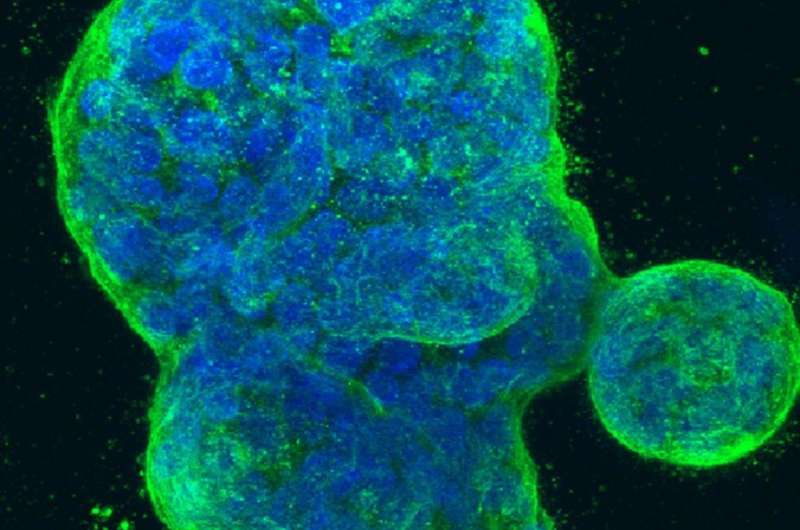New breast cancer targets

Genome-wide association studies (GWAS) have identified more than 150 genetic variations associated with increased risk for breast cancer. Most of these variants are not located in protein-coding gene regions but are assumed to regulate the expression of certain genes.
One way to figure out what these variants are doing is to conduct a cis-eQTL analysis. That's a way of detecting changes in the expression of genes presumably regulated by a nearby variant.
Using four large-scale data sets from normal and cancerous breast tissue samples, Xingyi Guo, Ph.D., and colleagues identified 101 candidate breast cancer susceptibility genes with variant-associated gene expression changes. In breast cancer cells grown in culture, the researchers also demonstrated how three genes promoted tumor growth by disrupting normal cell behavior.
Their findings, published May 3 in the American Journal of Human Genetics, reveal potential target genes associated with an increased risk of breast cancer and provide additional insights into the underlying genetic and biological mechanisms that drive this common cancer.
More information: Xingyi Guo et al. A Comprehensive cis -eQTL Analysis Revealed Target Genes in Breast Cancer Susceptibility Loci Identified in Genome-wide Association Studies, The American Journal of Human Genetics (2018). DOI: 10.1016/j.ajhg.2018.03.016


















